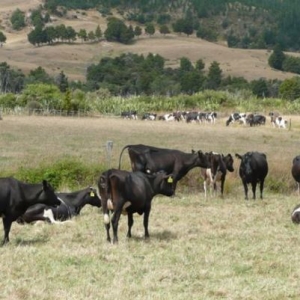A new year and a new – while yet familiar – set of challenges face New Zealand’s agricultural sector.
Already with 2015 only just begun we see Canterbury and other eastern parts of the country facing a long, dry summer. Meanwhile, Fonterra is struggling to meet its forecast payout of $4.70/kgMS and the red meat sector – especially sheep – is merely treading water.
As Waikato University’s Jacqueline Rowarth so eloquently puts it in her column here, water is the burning issue for New Zealand.
So-called environmentalists and other interest groups want to stymie almost every proposed irrigation scheme. Witness the ongoing battle faced by the proponents of the Ruataniwha dam in Hawkes Bay.
Remember, the crucial issue in New Zealand is not water, but water storage.
Again, as Rowarth points out, “New Zealand receives 608 billion cubic metres of water annually, but uses only 1.8%. Just over half of that 1.8% is used in irrigation, 23% by industry, 17% in drinking water and 7% is used by stock. It is the 597 billion cubic metres of water currently running out to sea that is of concern.”
The challenge for the agri-sector and those of us reliant on it is to ensure that facts like these are seen and heard by the general population. Too often the public get to hear only the emotive stuff pushed by groups like Forest & Bird and/or Fish & Game, where often the facts are not allowed in the way of their arguments.
No doubt dairy farmers will have a much tougher season this coming year than the past few. But ill-informed media reports imply the entire industry is on the brink of collapse and the country’s economy not far behind it.
History shows that all commodity sectors experience highs and lows. Unfortunately, dairy is currently experiencing the latter – after a couple of stellar seasons.
Meanwhile, to misquote Mark Twain: ‘Reports of sheep meat prices and the sector rising from the dead have been greatly exaggerated’. Sure, prices have come up, but this was off an unsustainably low base and some sort of reform/rationalisation for the sector is badly needed.
Like every other year, Rural News will cover the challenges facing the farming sector and continue to inform, entertain and inspire readers. Again we look forward to journeying with you.



















